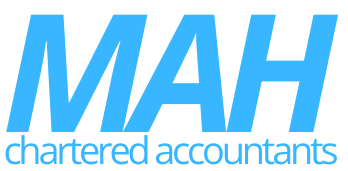We are startup accountants & can help you setup
Setting up a new startup or business can be stressful with what looks like a mountain of paperwork and red tape to deal with.
We’re here to help you with the tax and accounting side of things and have advised startups as diverse as a new hotel chain to a payments platform to fashion stores and e-commerce. We can support you with the fund raising process from seed rounds all the way through to an IPO.
[maxbutton id=”1″ url=”https://www.mah.uk.com/prices/” text=”Get an Instant Quote” ]
Generally speaking, if you make money from a business then you have to pay tax on your profit.
Profit is defined for tax purposes as your sales and business income minus eligible business expenses. Most expenses incurred in running a business will save tax, but some are disallowed such as entertaining customers/suppliers with restaurants, events or gifts.
Business structure
Limited company
The vast majority of our clients are limited companies because this structure can save a lot of tax and offer a lot of flexibility.
If you want to scale and grow quickly via investment then you’ll need a limited company to issue shares to investors. You can also use a holding company to own subsidiaries if you may need to sell in future or will have different sites/sectors.
Limited companies also provide protection against personal assets (eg house/car) if the business goes bust and can’t pay its suppliers/lenders.
Some examples of the tax savings:
- use a salary and dividends payment structure to avoid NIC and pay less income tax
- you can decide how much money to take out the business and when
- delay/defer tax using a directors loan
- appoint family members as shareholders/directors to save tax
- EIS/SEIS tax breaks
- R&D tax credits
Limited companies are required to file annual accounts and corporation tax returns, as well as file an annual confirmation statement. There is also more documentation involved to deal with shares and directors will need to file a self assessment to declare their dividends.
Sole trader
Sole trader registration is best for very small businesses as it involves less admin and cost.
If you expect your profit to exceed the annual personal allowance (2019: approx £12k per year) then you’ll need to be registered with HMRC as a sole trader.
Once your turnover exceeds £40-50k per year then it will usually be worth converting to a limited company.
If you expect to make a loss in the first few years then sole trader status can be quite beneficial as you offset the losses against previous years employment income to get tax refunds.
The main filing requirement is to prepare a self assessment tax return with details of income and expenses.
VAT
If your sales will exceed a certain threshold (£85k per year in 2019) then you have to be registered for VAT. This means you have to hand over 20% of your sales to HMRC, but you can also reclaim input VAT on expenses.
Most of our B2C clients will therefore add 20% to their planned sales prices so that they don’t suddenly start making a loss once VAT registration kicks in or lose consumers from having to increase prices. For B2B clients its not really an issue as business customers can generally just reclaim the VAT.
Many of our startup clients have voluntarily registered for VAT so that they can get regular refunds from HMRC for VAT paid on their expenses such as rent, software and consultancy etc.
VAT returns and payments usually have to be made quarterly.
Payroll
If you hire staff then you have to setup a PAYE scheme and issue payslips to employees. You’ll also need to calculate their income tax and national insurance and pay this to HMRC every month.
A pension scheme will also need to be setup and staff enrolled, although they can choose to opt out if they prefer.
Most of our limited company clients will setup a PAYE, even if there are no staff, as directors can pay themselves a salary to save tax.
Record keeping
As you can see above, various documents have to be filed with HMRC for accounts, self assessement and VAT etc on a regular basis.
In order to prepare these documents we need to have the full records of the business including:
- bank payments and receipts
- sales
- expenses
- loans
- share issues/options
Most clients will enter the transactions into cloud software like Xero, or use our excel template. Some clients are too busy or hate bookkeeping and so we do it for them.
Managing performance
If the bookkeeping is done regularly then we can check how the business is performing. We can also prepare cashflow forecasts and predict how the business will do in the next year.
This is important because the vast majority of startups fail in the first 3 years, but as we help clients to manage their performance, our clients tend to survive and thrive.
For example, we noticed one of our clients had a lot of slow paying customers with low value invoices and helped them to setup direct debit collections to automate the process. On another client we helped them to analyse their margins and to increase prices.
Next steps
[maxbutton id=”1″ url=”https://www.mah.uk.com/prices/” text=”Get an Instant Quote” ]
Please contact us for a free, no obligation consultation to discuss your requirements. Our offices are at Liverpool Street or we’re happy to have a phone/email discussion.






